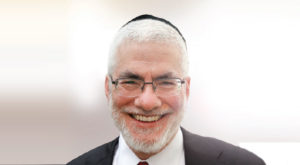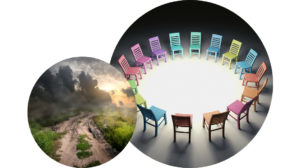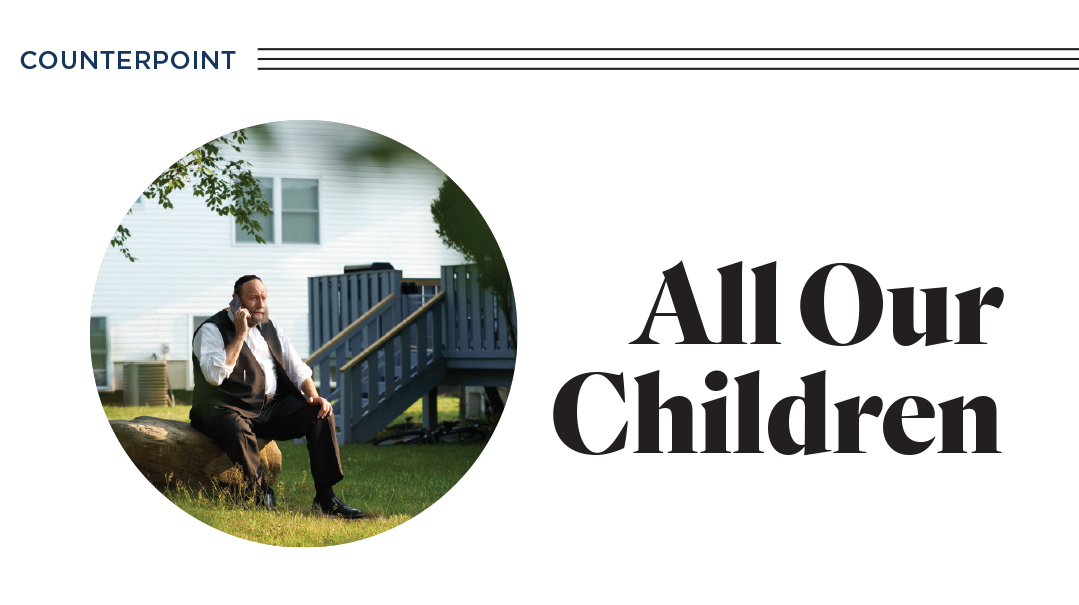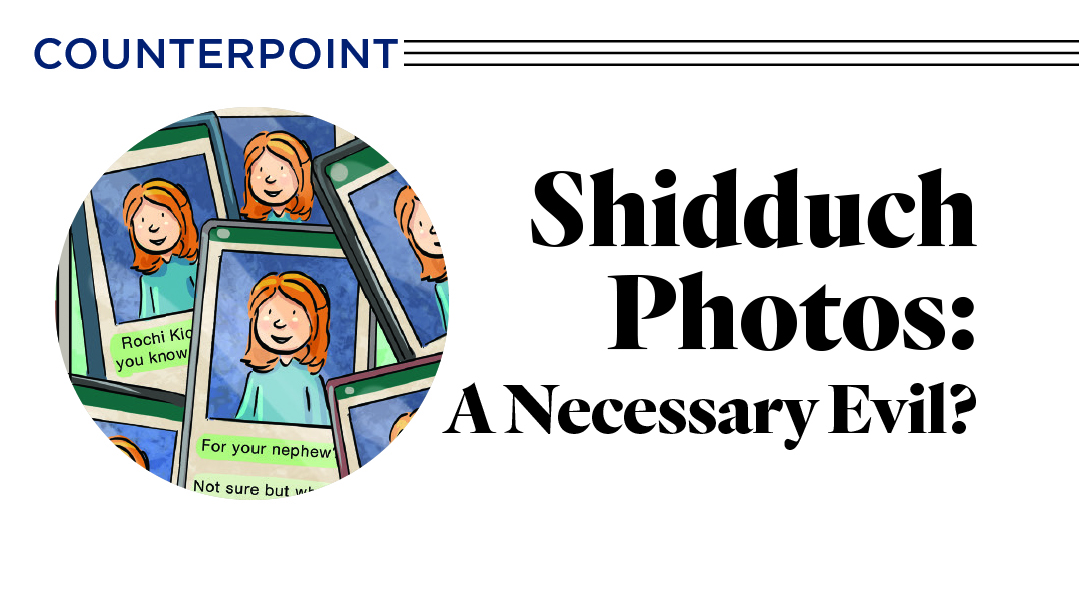Fuzzy Math: The conversation continues

"Give it a try; if you find yourself miserable you can always go back to living above your means"

Alexandra Fleksher’s piece on “Orthonomics” — the vague economic system that seems to come along with the frum lifestyle — has drawn significant feedback. Below is a sampling
CHANGE OUR STYLE — R.N., Brooklyn, NY
Kudos to Ms. Fleksher for taking the thoughts that many of us have in our minds and speaking them out loud. I constantly say the same thing — how do frum families do it?
I personally have worked full time since before I was married, got a degree because my parents were able to put me through college, and by literally scrimping was able to support my husband in kollel for over six years. We did not receive any support, lived in a small basement until we grew out of there, bought an old car to get us around, didn’t buy expensive food or meat, didn’t travel much (if we did it was on a very low budget), and we made it through.
Now, with two tuitions to pay and more expenses as the kids grow, we are able to put aside and save, but only because of our frugal budget — hand-me-downs or cheap clothes, cheap car, and baruch Hashem my well-paying job. Yes, if my husband had been working right away, our budget would have been higher, but not enough to live on the high road.
I do sometimes feel like: What am I missing? How can I save more? How have people my age already purchased houses long ago while I’m still saving up for a down payment?
I know most of them had help from their parents, but aren’t their parents supporting their own families with their own mortgages? How long can this lifestyle last without passing on huge debts to the next generation?
I’d love to hear people come up with ideas or plans to help lower the bar of our high standards. It takes a core few to get started, but I’m sure we can do it. We can make it en vogue to find a bargain or to make it on a lower budget.
Looking forward to hearing opinions on this topic.
HOW DOES IT END? — A. A., New York
Thank you to Alexandra Flektsher for verbalizing what is in all of our heads: How exactly does this system work? To her questions I might add a philosophical question: How did it come to be that in a community that inherently has astronomically higher expenses just to meet the bare minimum necessities of life (large families, private-school tuition, big-city housing), we have somehow also evolved to demand a higher standard of living that everyone feels the need to live up to (stylish clothing, redone kitchens, upscale simchahs, luxury vacations)?
But I have a more practical — and more urgent — question as well. The debt cycle only goes so far. Eventually, most people do need to stop working and retire (even if, as I suspect, they work far past the age of 65). And then what? What are they living on? It would seem impossible for most families to save for retirement; if anything, they are likely retiring in debt from decades of tuition and weddings (even without counting luxuries). And even with the kids out of the house, a fixed social security income would not support a typical frum bubby-zeidy lifestyle — there are still Yamim Tovim, simchahs, and gifts, not to mention medical expenses and the other costs of aging.
Where are all the people who gave to their families above and beyond their means? Who is supporting them?
ALWAYS ONE ANSWER — C. I.
In Alexandra Fleksher’s piece “Fuzzy Math,” she raises some undeniably valid concerns about the unnecessary pressure placed on struggling families by the escalating lifestyle expectations of the frum world. While standards of living and the number of newly minted “necessities” certainly vary from one community to another, we all struggle on some level to strike the proper balance between providing our families with a sense of normalcy while fortifying them with the tools to live confidently and contentedly within their means.
Still, it seems to me that the question posed at the beginning of the piece — the mystery of how frum families actually do manage to survive and thrive despite the numbers never quite adding up — is not entirely related to the issues raised further on. As Ms. Fleksher herself realizes, “Orthonomics” is an unsolvable puzzle even for a household that does not aspire to “keep up with the Cohens”; the basics alone likely exceed the earning power of the vast majority of frum families.
This being the case, I was disturbed to see the words “It’s hard, they struggle, and Hashem always helps out” dismissed as a “pat solution” to this dilemma we all share. Could the fuzziness of the math not be a result of the limitless number of variables involved in every household’s equation, the only constant being the messenger of the “harbei shluchim la’Makom?” Might the “murkiness” of the mathematics not be similar to the equally mystifying puzzle of history: the secret of Jewish survival throughout the ages despite the odds stacked so heavily against us —a riddle solved by Hashem’s unique Hashgachah over His Nation, that defies all predictions and statistics?
Any frum family that manages to stay afloat (albeit just barely) has its share of stories that provide incontrovertible evidence of Hashem’s Hand in their finances. As I grappled with which of my own household’s or others’ myriad experiences to share, I perused Family First and struck gold: No need to look further than Faigy Peritzman’s Parshah piece in the very same issue and the fantastic examples she uses to prove this very point! In her succinct words: “The more you hear, the more you realize that the buck doesn’t stop here but rather Up There.”
Yes, the math of frum finances is unquestionably fuzzy, but only because of the factors that vary so greatly from one home to the next. Whether the solution takes the form of infinitely generous parents, a government stimulus check, an exquisitely well-timed bonus or job opportunity, or even a chesed organization, the answer to the equation is always One.
PINPOINTING THE FEAR — Debbie B.
Thank you to Alexandra Fleksher for writing an article trying to expose (as you so aptly put it) the elephant in the room. Money fights and money stresses are one of the biggest causes of divorce in America today. Unfortunately, the frum community is not exempt from these stresses. For this reason, I am passionate about helping people understand the importance of creating a budget and living with it.
Two important topics come up when I talk to a couple about budgeting: fear, and bitachon and emunah. When we decide that Moishy “needs” a $500 suit for his bar mitzvah even if we can’t afford it, then this decision is motivated by fear. Behind all our little fears lies our biggest fear, which I call “The Mommy” fear. I always try to find out what my fears are by asking what this means or what will happen.
For example, if I don’t buy Moishy the $500 suit, what will happen? People will think we are poor (Fear #1). If people think we are poor, what will happen? No one will want to marry my kids (Fear #2). If no one wants to marry my kids, then what will happen? People will look at us and think we are nebachs (Fear #3). If people think we are nebachs, what does this mean? That we are worthless (the “Mommy” fear — the big, bad fear that dwarfs all the others). So we went from buying a suit to thinking we are worthless.
We will go to any lengths not to feel our “Mommy” fear, even if it means going into debt and hurting ourselves in other ways. The answer to this (and all) fear is emunah and bitachon. Hashem does not want us spending money we don’t have. He gives us the exact amount of money we need to have for the things we need to buy. We need to start trusting and relying on our loving Father and really believing that He knows what is best for us.
I beg all the wonderful readers of Mishpacha (and all of Klal Yisrael): Please work on a budget together with your spouse, spend only what Hashem, your loving Father, gives you — and start saying yes. Yes to a marriage that will bring the husband and wife closer than you ever thought possible. Yes to a life of peace. Yes to being able to walk down the street with your head held high instead of being downcast. Most importantly, yes to a life of being able to give lots of tzedakah and being able to help others.
Give it a try; if you find yourself miserable you can always go back to living above your means.
(Originally featured in Mishpacha, Issue 848)
Oops! We could not locate your form.











